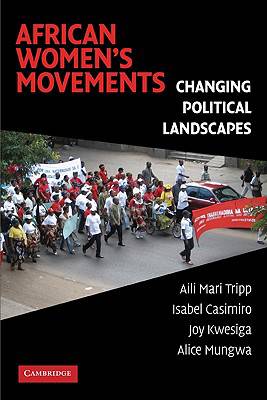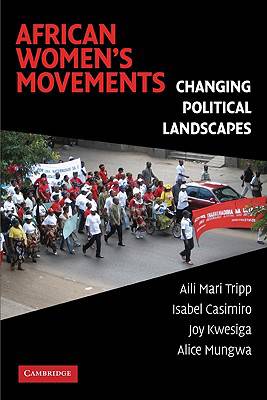
- Afhalen na 1 uur in een winkel met voorraad
- Gratis thuislevering in België vanaf € 30
- Ruim aanbod met 7 miljoen producten
- Afhalen na 1 uur in een winkel met voorraad
- Gratis thuislevering in België vanaf € 30
- Ruim aanbod met 7 miljoen producten
Zoeken
African Women's Movements
Transforming Political Landscapes
Aili Mari Tripp, Isabel Casimiro, Joy Kwesiga
Hardcover | Engels
€ 185,95
+ 371 punten
Uitvoering
Omschrijving
Women burst onto the political scene in Africa after the 1990s, claiming more than one third of the parliamentary seats in countries like Angola, Mozambique, South Africa, Tanzania, Uganda, and Burundi. Women in Rwanda hold the highest percentage of legislative seats in the world. Women's movements lobbied for constitutional reforms and new legislation to expand women's rights. This book examines the convergence of factors behind these dramatic developments, including the emergence of autonomous women's movements, changes in international and regional norms regarding women's rights and representation, the availability of new resources to advance women's status, and the end of civil conflict. The book focuses on the cases of Cameroon, Uganda, and Mozambique, situating these countries in the broader African context. The authors provide a fascinating analysis of the way in which women are transforming the political landscape in Africa, by bringing to bear their unique perspectives as scholars who have also been parliamentarians, transnational activists, and leaders in these movements.
Specificaties
Betrokkenen
- Auteur(s):
- Uitgeverij:
Inhoud
- Aantal bladzijden:
- 280
- Taal:
- Engels
Eigenschappen
- Productcode (EAN):
- 9780521879309
- Verschijningsdatum:
- 17/11/2008
- Uitvoering:
- Hardcover
- Formaat:
- Ongenaaid / garenloos gebonden
- Afmetingen:
- 155 mm x 229 mm
- Gewicht:
- 498 g

Alleen bij Standaard Boekhandel
+ 371 punten op je klantenkaart van Standaard Boekhandel
Beoordelingen
We publiceren alleen reviews die voldoen aan de voorwaarden voor reviews. Bekijk onze voorwaarden voor reviews.











